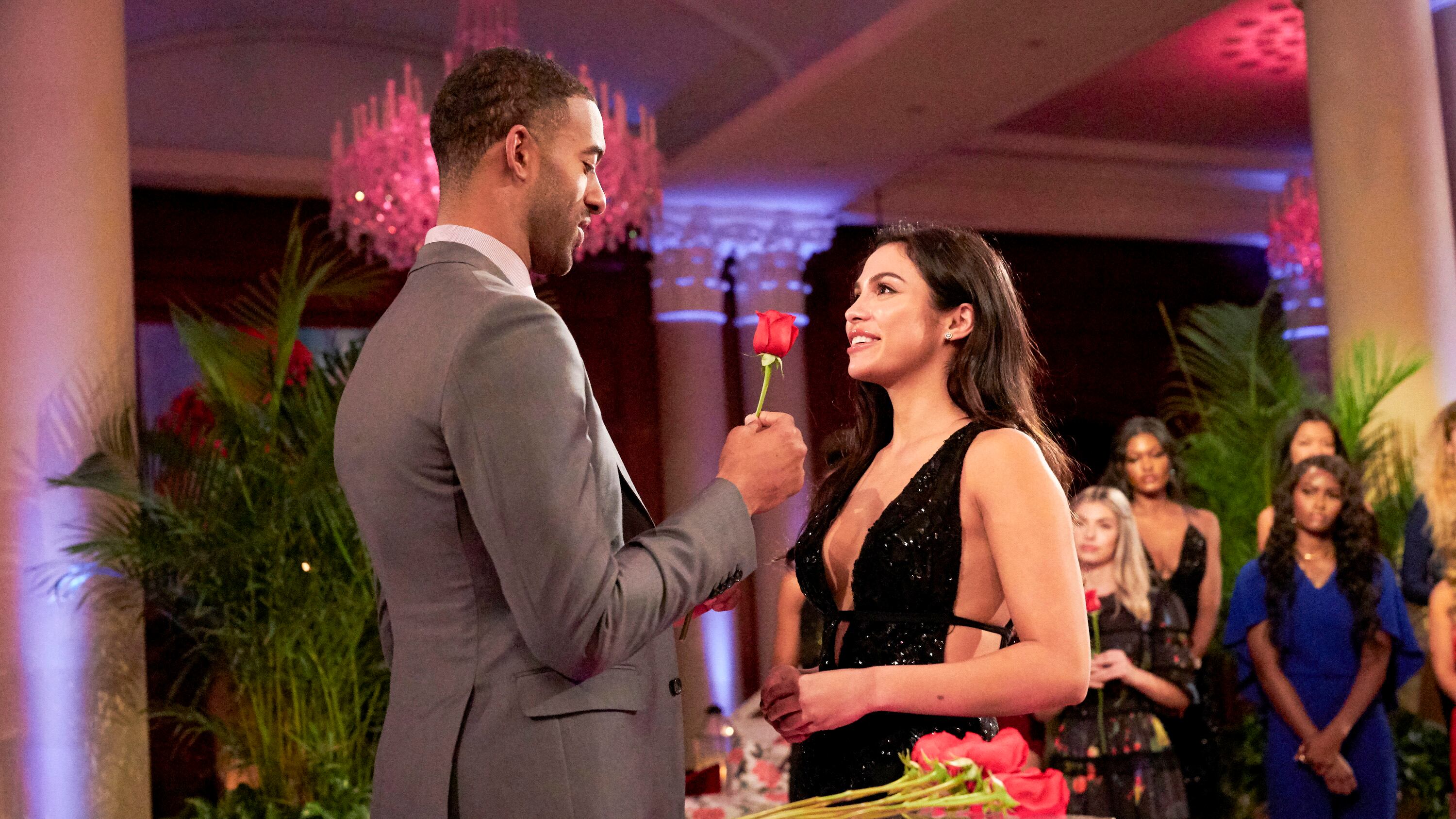When I first caught a glimpse of what I thought at the time was the most scandalous show on television in 2014, I wanted to douse my eyes with bleach. There was a couple aggressively making out on a white sand beach while the tide washed up around them.
I was horrified. What in the world did my mom have on? I later learned that it was “The Bachelor.” After that scarring moment, I repressed thoughts of the show until 2018 when I was in eighth grade.
On Monday night at 7 p.m. central, my mom and I would meet in the living room to watch “The Bachelor” or “The Bachelorette.” Some nights, my dad would join my mom and me on the couch to “do work.” Other nights, he would “secretly” watch from the office. If you asked him about it, he would vehemently deny his participation.
So, in a world dominated by sports enthusiasts and news consumers, how on earth did a show about random people making fools of themselves under the guise of finding love gain such traction? How has viewership remained so high while other shows on cable TV have failed due to the numerous streaming services available? And, most importantly, why do men continue to deny their interest?
The Bachelor franchise has been around since its debut in March 2002 and has seen over 40 seasons of matchmaking between “The Bachelor” and “The Bachelorette.” How many of those love matches are still married…well, that’s a different story.
As of 2023, the number of couples who have remained together is shockingly — or unsurprisingly, depending on how you look at it — low. In the 27 seasons of “The Bachelor,” only six couples have remained together. Similarly, in the 20 seasons of “The Bachelorette,” only three couples remain together.
The success rate deeply contradicts the point of the show: to watch a couple fall in love. People watch because the franchise captures love and heartbreak through 18 hours over nine weeks. Oh, and, the chaotic drama is a plus.
While the show features heartbreak, it still ultimately has a happy ending (again, generally), which satisfies our inner hopeless romantic. So, that’s why we watch, right? To watch a couple fall in love and give us hope that there’s someone out there for everyone?
This season’s bachelor, Joey Graziadei, features several entertaining contestants vying for his heart of gold. So far, there have been seven episodes filled with gut-wrenching melodrama. Sydney Gordon and Maria Georgas quickly became the focal point for dramatic confrontations. For what? I’m still not exactly sure.
Contestants, like Jess Edwards, appear to be on the show for their 15 minutes of fame, causing drama from day one with obnoxious and unbecoming behavior.
Others provide a good laugh with their antics and desperation to get an upper hand with Graziadei. Evalin Clark, of San Antonio, Texas, in a last-ditch effort to get a seat next to Grazidei, jumped over a table during a game of musical chairs, landing on top of a different girl in the group date.
While there do seem to be some good contestants, like fan favorite Daisy Kent, the abnormal contestants greatly outweigh the normal.
Week four, excluding Hulu viewership, raked in 4.2 million viewers, according to Nielsen’s Live + Same Day data. Last season’s Bachelorette finale with Charity Lawson brought 2.99 million viewers. Considering the difference in viewership and taking into account that “The Bachelor” episode was a filler episode compared to “The Bachelorette’s” finale, it’s clear that “The Bachelor” has more fans than “The Bachelorette.”
The bottom line is that “The Bachelor” has higher viewership ratings because it’s more entertaining. There’s a certain level of drama you can reach with 32 women that you can’t with 25 men.
Why is a show where women are pitted against each other so enthralling? Because women are consistently taught that every other woman is a rival. Despite today’s progressive society, viewers still grab a bowl of popcorn and settle in to dedicate two hours a week to a show where women psychologically fight each other for a man.
The show’s nature has fans rooting for one contestant while praying to see the downfall (elimination) of another because the franchise plays to societal conditioning by giving life to stereotypes.
Every episode brings new drama and perpetuates the preconceived notions about women and gossip. While entertaining, the show ultimately contributes to the regression of society, especially in areas concerning women’s “worth” and their conventional “role in social norms and everyday sexism.”
So, why do you watch “The Bachelor?” Is it for the Bachelor himself? The theatrical drama? The dresses? The tears, tantrums and cake-throwing? Either way, you’ll probably still enjoy watching sisters Lauren and Allison Hollinger compete for the same man… and not for the first time apparently.
